Teacher’s Commentary FALL
2025
escaping egypt I god delivers us I following god with courage



escaping egypt I god delivers us I following god with courage


ECHOES Middle School Teacher’s Commentary
A self-contained teaching program for use with Middle School Creative Teaching Aids and The Rock © 2025 David C Cook. Permission required to reproduce. All rights reserved. Printed in South Korea.
Echoes is a multicultural curriculum published quarterly by David C Cook, 4050 Lee Vance Drive, Colorado Springs, CO 80918, U.S.A. Visit our website at DavidCCook.org. Contact us at 1-800-323-7543 (U.S. only) or 1-800-263-2664 (Canada only).
To equip the Church with Christ-centered resources for making and teaching disciples who obediently transform today’s generations . . . David C Cook is a nonprofit organization dedicated to international Christian education.
Editor: Rebecca Stone Designer: Stephanie Hopkins Cover Photography © Alistair Berg/Getty Images
All Scripture quotations, unless otherwise indicated, are taken from the Holy Bible, New International Version TM, NIV TM Copyright © 1973, 1978, 1984, 2011 by Biblica, Inc. Used with permission. All rights reserved worldwide. www.biblica.com.
Quarter …
Unit 13:
Escaping Egypt
These lessons focus on Moses’ faith and leadership and how God used him to bring the Israelites out of Egypt’s bondage. As students see Moses’ perseverance and dependence on God, they will be encouraged to trust God’s purpose and plan for their lives.
Unit 14:
God Delivers Us
The lessons in this unit show how we can stand courageously with God’s strength. As students see the courage of Caleb and Rahab, your students will find that they, too, can stand firm in their faith with God’s help.
Unit 15:
Following God with Courage
This unit focuses on Old Testament examples of God’s people following Him with courage. As your teens study these people, they will be challenged to choose courage as they walk with God.

A
few thoughts as you teach this quarter …
Where is God asking you to step out in faith?
Moses took many steps of faith when God sent Him to deliver His people from their bondage in Egypt. Moses had a lot of excuses at first, but he persevered and completed the work God gave him.
Think about this: What excuses are holding you back from doing what God is calling you to do? This quarter’s lessons about trusting God’s plan and will for our lives should challenge us to take that bold step of faith we’ve been putting off.
As you teach your students this quarter, encourage them to ask God for the strength to do what He is calling them to do, “for it is God who works in you to will and to act in order to fulfill his good purpose” (Philippians 2:13).
Teacher Training
It only takes a couple minutes … teacher training articles and videos are online! Visit EchoesCurriculum.com/training



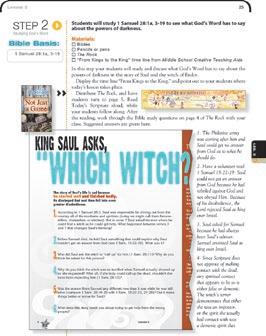
Each teacher commentary contains step-by-step instructions for sharing the lesson with your students. Bible study lessons, exciting activities, relevant cultural content, and teacher helps combine for easy-to-teach lessons for your youth. Works interactively with other middle school products. One per class.

Find ways to spark your heart and ignite your student ministry. Go to MinistrySpark.com and sign up to receive more free resources.
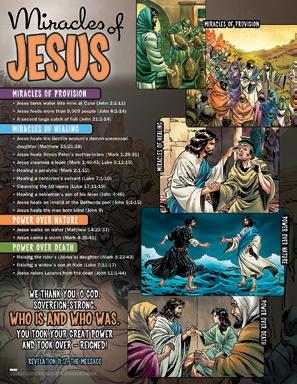

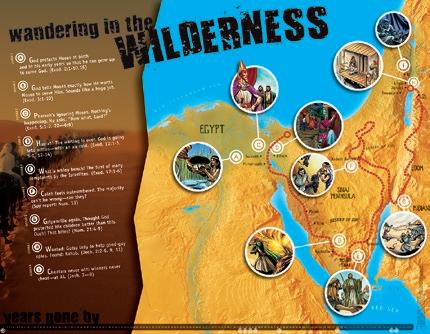

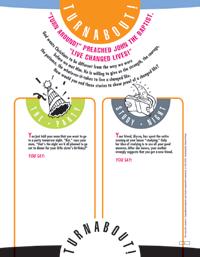
High-impact visuals (such as posters, games, and worksheets) enhance the lessons in the teacher’s commentary. One per class.

Superintendent’s Handbook has multi-grade material, on a common Biblical theme, to open and close the Sunday school hour.

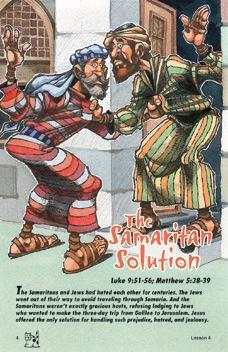

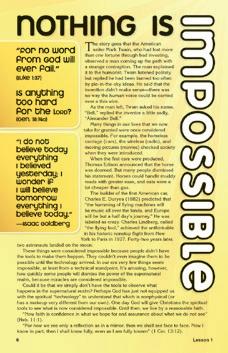

This student book, with eight pages for each lesson, includes Bible studies, stories, and articles. Each lesson contains six days of devotions so your students can continue exploring God’s Word throughout the week. Need one per student.

The Middle School Teacher’s Commentary, Middle School Creative Teaching Aids, and The Rock are also available in a digital format. Need one bundle per class.
D OWNLOADED

D OWNLOADED
FREE!
Downloadable Options for Steps 1 and 4
» Relevant subjects (pop culture, trending topics, and fascinating events) that are going on in your students’ world today will help them recognize how God’s Word relates to them here and now.
» Cover topics that students hear and talk about all the time but rarely discuss in Sunday school!
RealLifeDownloaded.com
o Middle School Teacher’s Commentary (1 per class)
o Middle School Creative Teaching Aids (1 per class)
o The Rock (1 per student)
o Bibles
o Index cards
o Masking Tape
o Markers
o Media player
o Paper
o Pens or pencils
o Poster board
o Whiteboard, markers, and erasers
See individual lessons for additional supplies needed.

Echoes step-by-step format allows students to learn Bible truths and how to apply them to their lives. With extra information for teachers, and detailed activities and lessons, students leave class with a deeper understanding about God’s Word.
Teacher Pages give you an overview of the lesson while helping you prepare for what you will teach.
Connecting with God’s Word includes an activity and discussion to help young people connect with each other and with God’s Word through their individual ideas and experiences. This step motivates and gets your students thinking about the Bible truth. For a current events option for this step, go to RealLifeDownloaded.com.
Studying God’s Word gives your students an opportunity to dive into a portion of God’s Word and then review it together. In this step you’ll guide your students to engage in a fruitful discussion about the Bible at a meaningful level.
Interacting with God’s Word allows students a time to explore and interact with the concepts they’re learning. By doing activities founded in the Bible lesson, your students will actively work through the Bible passage by interacting with the text.
Life Response gives students time to create a personal response to what they have learned in God’s Word. They decide how to apply the Bible truth and lesson aim to everyday life. If you used Real Life Downloaded in Step 1, use the correlating Step 4 here.

ByJuliet Liu
Among the many who played a role in the civil rights movement of the mid-twentieth century, Ella Baker stands out as a unique representation of leadership. Ella Baker shows the meaning of Christlike leadership—not seeking to be a charismatic person in the spotlight but accepting the role of a quiet servant, one who raises others up. She demonstrates that true leadership is rooted in giving and empowering others.
Early Life and Education
Born in 1903 in the state of Virginia, Ella Baker grew up in a family that valued education and community activism. Her grandmother was born into slavery, and her parents instilled in her a strong sense of justice and the importance of standing up against inequality. After college, she began a career as a teacher. Soon her passion for activism took center stage in her professional and personal life. This activism was rooted in the stories her grandmother told, about what it was like to grow up enslaved.
Activism and the NAACP
Baker demonstrated her commitment to civil rights in the 1930s when she began working with the National Association for the Advancement of Colored People (NAACP). Beginning as a volunteer, her hard work and determination advanced her to several leadership roles. Throughout the 1940s, Baker acted as the organization’s first field secretary.
Baker believed in the power of ordinary people to effect change, and her role only made her more certain. This belief would shape her approach to leadership throughout her life, as she began to witness that real power lies in collective action, not in the visibility of individuals.
SCLC and the Importance of Collective Action
In 1957, Baker founded the Southern Christian Leadership Conference (SCLC) alongside Dr. Martin Luther King Jr. and others. As she worked with Dr. King, Baker began to see her vision of leadership diverge from many male counterparts in the SCLC. Several of these men emphasized a centralized, charismatic leadership model: they believed only strong leadership would drive the civil rights movement forward. But Baker advocated for the opposite—a more decentralized, democratic approach to organization. She believed that leadership should not just arise from public speakers in the limelight but from ordinary members of the community. For Baker, it was essential to nurture the skills and voices of those who might otherwise remain unheard.
SNCC and the Empowerment of Young Leaders
Baker’s commitment to empowering others became especially evident in her approach to youth activism. She understood the necessity to engage young people in the civil rights movement and recognize their capacity to drive change. While the SCLC and the NAACP had always made efforts to convince young activists to join their existing organizational structure, Baker feared that young students would not be taken seriously or allowed to contribute in their own unique ways. Baker encouraged the college students to create their own movement. Thus Baker inspired a generation of young men and

Behind closed doors, Baker challenged Dr. King. She argued that, if people were tempted to worship and follow him as an extraordinary hero, this would not be good for the movement. An emphasis on other charismatic leaders might cause ordinary citizens to question their own ability to make meaningful contributions. Ella Baker did not back down from conflict, and she continued to grow the movement in her own ways.
Baker famously stated, “Strong people don’t need strong leaders.” This philosophy emphasizes the importance of empowering individuals to take ownership of their activism. It is all too easy to tell ourselves, Someone else can be the one to do it. But Baker encouraged individuals to think critically and to take action; she fostered that sense of agency.
Defined by humility and a focus on service rather than personal acclaim, Baker’s leadership style was effective. As she worked behind the scenes, provided support and guidance to others—while deliberately avoiding the spotlight for herself—Baker modeled a different path. Her mentorship extended beyond mere guidance; she invested in the growth, contributions, and success of all those around her.
Ella Baker’s life reminds others of the leadership style of Jesus, who told His disciples that anyone wishing to be a leader must first be a servant of others (Mark 10:43–45). She embodied this principle, demonstrating that true leadership is not about seeking power or recognition but about lifting others up and serving the community. Baker’s legacy lives on and continues to influence activists and leaders today, especially those who value collaboration and community engagement. In a world that values charisma and personal glory, Baker’s example says, Think again. She teaches that effective leaders emerge from the community, driven by a passion for justice and a commitment to the good of others.
Unit 13 Theme:
Escaping Egypt
Church/Home Theme:
God Redeems and Restores Us
1 ➲ Life Need (5–10 minutes)
• Students talk about career preparation and how to do it.
◽ Occupation cards
STEP 2 ➲ Bible Learning (15–20 minutes)
• Study how God prepared Moses for leadership.
□ Bibles □ The Rock □ Paper and pencils or pens
□ Whiteboard and markers
□ “Wandering in the Wilderness” map from Middle School Creative Teaching Aids
STEP 3 ➲ Bible Application (5–10 minutes)
• Help youth realize how God prepares them for service also.
• Optional: Read and discuss a story from The Rock
□ The Rock
STEP 4 ➲ Life Response (about 5 minutes)
• Students remember what God has done.
□ Pencils or pens
□ Paper or index cards
□ Markers
□ The Rock
For it is God who works in you to will and to act in order to fulfill his good purpose.
—Philippians 2:13
Bible Basis:
Exodus 2:3-10, 15; 3:1-10; Acts 7:22
Bible Truth:
God prepares people for the ministry He has for them.
Lesson Aim:
That your students will realize God is preparing them for service to Him.
This unit focuses on the life of Moses. Lesson 1 begins by studying Moses’ preparation and commission.
The Hebrews originally came to Egypt as honored guests. Over time they were pressed into service as part of Egypt’s vast corps of slave workers. While their lot was hard, their numbers grew. As a population-control measure, Pharaoh ordered all male newborns of the Hebrews thrown into the Nile River (Ex. 1:22). When Moses was born, his Hebrew mother, Jochebed, hid him as long as she could. By the age of three months his crying was loud enough to attract attention. Instead of dropping the child directly into the river, Jochebed set him adrift in a waterproof basket.
One of Pharaoh’s daughters found the basket, pitied Moses’ helpless state, and (with a hint from his sister, Miriam) arranged for Jochebed to nurse him. Now as Pharaoh’s daughter’s son, he enjoyed luxury and privilege and received one of the finest educations possible at that time.
Later, after killing an Egyptian man, Moses fled to Midian on the Sinai peninsula (2:11-22). He married and probably expected to spend the rest of his days there. At about the age of 80, Moses was out on a grazing circuit
◽ indicates items you will need to prepare before class
—continued on next page



Understanding the BibLe —cont'd
when God attracted his attention with a bush that burned but was not consumed.
Speaking from the bush, God instructed Moses to approach the bush barefoot—which was, in ancient times, considered reverential in sacred situations.
God told Moses He saw the Hebrews’ suffering (compare 2:23-24 and 3:7) and planned to rescue them. He was going to fulfill His promise to Abraham (Gen. 13:14-17; 17:8) by settling the Hebrews in Canaan. And Moses was the man to lead them.

Today’s lesson focuses on preparation for the future. For young people, adulthood may seem far away. Their present lives are changing so fast, youth tend to think if it’s not something they can use today, it isn’t valuable.
Yet we know that God is preparing them for future responsibilities. By getting to know your students—their interests, talents, and dreams—you can help them see how today’s requirements (at home, school, and church) can be useful for their future.
You can accomplish this by showing an avid interest in their comments, especially in the Bible Application and Life Response sections of the lesson in which they apply the biblical principles they’ve learned to their personal lives. When a student talks about a specific experience, ask follow-up questions such as, “How did you feel afterward?” or “What were you thinking while you were doing such-and-such?”
“But do I have to?”
“What difference does it make?”
“Why?”
These are questions young people often ask as they search for relevance in their lives.
Adolescence is a stressful period of life. Even if they cannot voice it, young people are in process. They are trying to integrate childhood patterns with adolescent changes to form a new concept of who they are and what their roles are to be.
Objective: To encourage students to mix with one another.
Give each student 10 pieces of hard candy. They are to get rid of their candy by:
1) approaching someone first, 2) standing on one foot, 3) saying their name, age, and favorite color, and then 4) giving one piece of candy to that person.
After a few minutes, ask students if they remember the names and favorite colors of the people they talked to. There really is no winner, but this game should help the class loosen up a little before the lesson.
Your students may question your teaching in order to form their own structure of beliefs and values. Try to see this as a sign of growth rather than as a problem.
When you allow your students the freedom to explore the possibilities and consequences of their own choices, you enable them to have a stronger, personal faith rather than just a list of beliefs handed to them.
5–10 minutes
That your students will realize God is preparing them for service to Him.
OBJECTIVE: Students talk about career preparation and how to do it.
Materials
◽ Occupation cards
Before class, write several occupations (doctor, computer help desk, engineer, lawyer, graphic designer, artist, plumber, concert pianist, teacher, actor or actress, missionary pilot, etc.) on several index cards. Have students pair up, and give each pair a set of cards. One person must try to guess the occupation while the partner gives clues about the preparation needed for that job. Make sure your students do not use words in their clues that are similar to the occupation. For example, they can’t say “go to law school” if they are describing a lawyer; they could, however, say “study criminal justice.” You might want to make this a race to see which team finishes first. When most pairs are done, gather the group together to discuss this question:
➲ What are some common ways that people prepare for their life work? (Special classes or training, practicing, internships or student teaching.)
➲ What is important to know before you begin preparation? (Interests, skills, career direction or choice, what is required—licensure, certification, educational degrees, etc.)
➲ How is our own preparation for a career similar to or different from the way God might prepare one of us for His work? (We may or may not know exactly what God has in mind for us. We might have opportunities that lead us into work God wants us to do.)
This lesson is about how God prepared Moses to fulfill His purpose. As we go through the lesson pay attention to the things God did in Moses’ life and how Moses learned what God wanted and followed His purpose.
D OWNLOADED
Free! Downloadable Options for Steps 1 and 4.
Bible Learning
15–20 minutes
Bible Basis:
Exodus 2:3-10, 15; 3:1-10; Acts 7:22
OBJECTIVE: That your students discover how God prepared Moses for life through his early experiences.
Materials:
□ Bibles
□ The Rock
□ Paper and pencils
□ Whiteboard and markers
□ “Wandering in the Wilderness” map from Middle School Creative Teaching Aids
In today’s study we’re going to take a look at Moses’ life.
Display “Wandering in the Wilderness,” the map poster from your Creative Teaching Aids packet. Point out #1 and #2 on the map, and have students read the appropriate Scripture passages listed. Next read these paragraphs from the Bible study in The Rock to your class.
◾ From THE ROCK—Moses in Training
Exodus 2:3-10, 15; 3:1-10; Acts 7:22
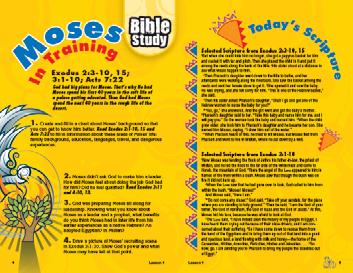

Exodus 2:3-10, 15
3But when she could hide him no longer, she got a papyrus basket for him and coated it with tar and pitch. Then she placed the child in it and put it among the reeds along the bank of the Nile. 4His sister stood at a distance to see what would happen to him.
5Then Pharaoh‘s daughter went down to the Nile to bathe, and her attendants were walking along the river bank. She saw the basket among the reeds and sent her female slave to get it. 6She opened it and saw the baby. He was crying, and she felt sorry for him. “This is one of
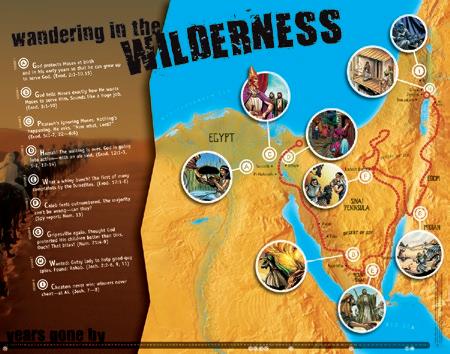
God had big plans for Moses. That’s why He had Moses spend his first 40 years in the soft life of a palace getting educated. Then God had Moses spend the next 40 years in the rough life of the desert.
➲ 1. Create and fill in a chart about Moses’ background so that you can get to know him better. Read Exodus 2:1-10, 15 and Acts 7:22 to fill in information about these areas of Moses’ life: family background, education, languages, travel, and dangerous experiences. (Family background: Moses’ parents were both Levites; he had a sister; his mother helped protect his life. Education: He received a fine Egyptian education. Languages: Probably knew both Hebrew and Egyptian. Travel: Moved to Midian. Dangerous Experiences: Could have been murdered at birth if it weren’t for his mother’s quick thinking and God’s protection; had the awesome experience of talking with God (burning bush episode); given dangerous orders by God to talk to Pharaoh and bring the Hebrew people out of Egypt.)
Before answering question 2, have students look up Exodus 3:11 and 4:10, 13.
➲ 2. Moses didn’t ask God to make him a leader. How did Moses feel about doing the job God had for him? Did he feel qualified? Read Exodus 3:11 and 4:10, 13. (Moses felt unqualified for the job. He told God that he was a nobody and was tongue-tied. He felt someone else could do a better job.)
➲ 3. God was preparing Moses all along for leadership. Knowing what you know about Moses as a leader and a prophet, what benefits do you think Moses had in later life from his earlier experiences as a native Hebrew? An adopted Egyptian? In Midian? (1. As a native Hebrew, his mother probably taught him to love God. He had “roots”—so he could identify with the needs of his people. 2. As an adopted Egyptian, he was familiar with the Egyptian way of doing things, and especially with the royal family. He also had a great education. 3. In the wilderness of Midian, he probably learned a lot of survival skills that he could use to help the Israelites survive in the desert after
the Hebrew babies,” she said.
7Then his sister asked Pharaoh’s daughter, “Shall I go and get one of the Hebrew women to nurse the baby for you?”
8“Yes, go,” she answered. And the girl went and got the baby‘s mother. 9Pharaoh’s daughter said to her, “Take this baby and nurse him for me, and I will pay you.” So the woman took the baby and nursed him. 10When the child grew older, she took him to Pharaoh’s daughter and he became her son. She named him Moses, saying, “I drew him out of the water. . . .”
15When Pharaoh heard of this, he tried to kill Moses, but Moses fled from Pharaoh and went to live in Midian, where he sat down by a well.
Exodus 3:1-2, 4-8, 10
1Now Moses was tending the flock of Jethro his father-in-law, the priest of Midian, and he led the flock to the far side of the wilderness and came to Horeb, the mountain of God. 2There the angel of the Lord appeared to him in flames of fire from within a bush. Moses saw that though the bush was on fire it did not burn up. . . .
4When the Lord saw that he had gone over to look, God called to him from within the bush, “Moses! Moses!“
And Moses said, “Here I am.“
5“Do not come any closer,” God said. “Take off your sandals, for the place where you are standing is holy ground.” 6Then he said, “I am the God of your father, the God of Abraham, the God of Isaac and the God of Jacob.” At this, Moses hid his face, because he was afraid to look at God.
7The Lord said, “I have indeed seen the misery of my people in Egypt. I have heard them crying out because of their slave drivers, and I am concerned about their suffering. 8So I have come down to rescue them from the hand of the Egyptians and to bring them up out of that land into a good and spacious land, a land flowing with milk and honey—the home of the Canaanites, Hittites, Amorites, Perizzites, Hivites and Jebusites . . . 10So now, go. I am sending you to Pharaoh to bring my people the Israelites out of Egypt.”
leaving Egypt. 4. Draw a picture of Moses’ recruiting scene in Exodus 3:110. Show God’s power and what Moses may have felt at that point.)
Hand out blank paper for drawing. Students will probably draw a huge burning bush and Moses down on his knees or flat on his face, nervous and barefoot.
Suppose you were Moses, wasting away in the Midian wilderness, watching sheep for your father-in-law, Jethro. Moses must have wondered what he could possibly do with his life. After all, he had a criminal record. The reason he was in Midian in the first place was that once he had seen an Egyptian beating a Hebrew, and Moses got so mad he killed the Egyptian. Well, that just about fixed his chances in Egypt. Pharaoh wanted to kill him. That’s why Moses booked on over to Midian.
➲ If you were looking for a leader for your people, would you have wanted to hire this guy for the job? Why? Some students may say, “Yeah, because he’s a Hebrew; he’s concerned about his people. He speaks their language.” Others might say, “Hire this guy? I don’t think so! He killed somebody and he has no confidence in himself. Plus he’s been hangin’ out in the desert, which wouldn’t do anyone any good.”
Throughout the Bible God uses lots of different and sometimes unlikely people to make a point. Remember as we talk about Moses that, no matter what your life is like, God has a plan.
Bible Application (5–10 minutes)
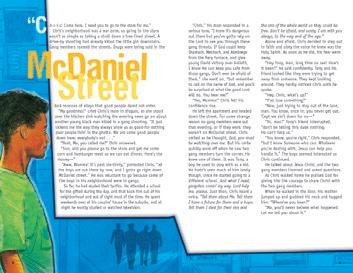
OBJECTIVE: That your students will become aware that God is preparing them for service to Him.
Materials:
□ The Rock
➲ Which of Moses’ qualifications do you think was most important? (Answers may vary. The main thing is that Moses honored God.)
➲ What good would Moses’ background have been if he had not obeyed God? (None. He’d be herding sheep, while the Israelites were still enslaved.)
➲ What does that tell you about how important your background is?
Emphasize that your qualifications are only as good as your willingness to obey.
➲ Can you speculate as to what might have happened if Moses decided on his own that he was going to be the big man and free his people? (He’d have probably been put in his place by the Hebrews or possibly executed by Pharaoh.)
Actually, there’s some evidence that both may have happened when he killed the Egyptian. See Exodus 2:15. Acts 7:25 says he thought his people would recognize then that God was using him to rescue them, but they didn’t. Midian must have been a humiliating experience, but even that was used for good in the long run.
➲ Do you know what God wants you to do in life? Think about what you are learning now from your experiences, problems, and opportunities.
Don’t ask for verbal responses to this question unless you sense that someone has something to share. But make it a question for thought and examination.
➲ Can you think of any reason for hard times? What good could come from them? (Students should understand that all experiences can prepare them for serving God.)
➲ Can you name a time when you’ve had to do something you didn’t think you could do? What did you discover about yourself?
We often discover in retrospect that we’re more qualified than we thought.
➲ Can you think of anything in your life that you wish had never happened? How might that thing make you a better person?
Don’t ask for verbal responses, but allow students time to think about their answers.
If you have time have your class read, “McDaniel Street” on pages 2 and 3 of The Rock. Then start a discussion with the following questions.
➲ How does this relate to your experience with gangs? Do you think the story is realistic? What is the main idea of the story? How does the main idea relate specifically to a situation in your life? Why is it important to obey God?
Response (5–10 minutes)
Bible Truth:
God prepares us to fulfill His purpose.
OBJECTIVE: That students remember what God has done and look for their purpose in life right now.
Materials:
□ Pencils or pens
□ Paper or index cards
□ Markers
□ The Rock
Moses had a very unique upbringing, but he did not continue in the path of his early years because God had a different purpose for his life. Our footsteps don’t always lead us to an obvious career or life purpose. Walking in God’s will for our lives depends on listening to God and following His plan.
➲ The Bible says, “For it is God who works in you to will and to act in order to fulfill his good purpose” (Phil. 2:13). How can we know what His “good purpose” is for each of us?
Have students think about the following questions and answer them aloud.
➲ How can we be sure we are following God’s plans for our lives? (We can study His message to us in the Bible and follow what He says there. We can talk with other believers about what God’s plan might be for us and certainly ask God what His plan is for us. We might have to wait to hear while we take small steps that lead us to learn His plan, but He never leaves us on our own to just figure it out.)
➲ What kind of limits should we expect for God’s plans? (None. All things are possible with God—the sky is the limit.)
➲ How can we learn God’s plans for us and be able to follow them? (By maintaining a growing relationship with God. It’s like the saying, “Does being in a garage make you a car?” No. It is our relationship with God that shapes our part in His plan—not the specific actions.)
Just as God prepared Moses to fulfill His purpose, He also prepares us. It’s not always easy to see God’s plan though—even Moses’ life was in danger as a baby. Pharaoh wanted to kill him later, and he spent many years as a shepherd in the desert. But God used all of that to prepare Moses for His own plan. And He does the same with you.
Have students use supplies to make a reminder card for those times when God’s plan seems remote. It may include this week’s memory verse, Philippians 2:13. “For it is God who works in you to will and to act in order to fulfill his good purpose.”

Ask a few volunteers to close in prayer, committing the lives of your students to God and His plan. Encourage students to keep their reminder cards in a prominent place where they will see them often. Encourage your class to read the “Everyday Devos” on page 8 of the The Rock throughout the upcoming week.
As you discuss salvation with your class, remember that each student is developmentally different Some students may not be spiritually mature enough to go through all the steps to become a Christian or all the steps to have a relationship with God . They may not fully understand that they are accountable to God for their sins and need forgiveness that Christ makes possible
However, learning that God loves them and wants to forgive their sins will prepare them for the time when they are ready to receive Christ as Savior . You and your church family have the responsibility to provide this information and the environment for this learning .
For those who do express an interest in personal salvation, try talking with them alone after class or arrange a time for them to meet on this subject with the pastor or one of the church officers As you prepare to talk with a student about his/her personal salvation, you may want to read the Scriptures listed to reacquaint yourself with their messages . Share this information naturally with your student .
Help your students know how to pray . This should include teaching how to tell Jesus they believe He is God’s Son, they are sorry for their sins, and they want Him to forgive them and be with them always .
The two sets of steps listed here are a help for you to be ready to respond whenever the Holy Spirit leads a student to you to make a commitment to Christ To give your student both steps at once may be too much to process . Offer steps to your student as you are led by the Holy Spirit .


1. Respond to God’s invitation to salvation Jeremiah 31:3; John 3:16
2. Seek a relationship with the Lord Isaiah 55:6-7; Matthew 6:31-33
3. Confess your sins
Romans 3:23 and 10:9-10; 1 Corinthians 15:3-4; 1 John 1:9
4. Repent of your sins
2 Chronicles 7:14; Luke 13:3 and 15:7; Acts 17:30
5. Ask God to save you Romans 10:13
1. Listen to the Holy Spirit John 14:26; John 16:13-14
2. Adjust your life to God’s will Jeremiah 18:1-6; Matthew 22:37-38; John 5:17, 19-20, and 8:47
3. Learn to be God’s servant Matthew 20:26-28; Philippians 2:5-8, 13
4. By faith, join God in His work Amos 3:7; Hebrews 11:24-29; James 5:17-18
5. Remain faithful to God Philippians 3:4-14



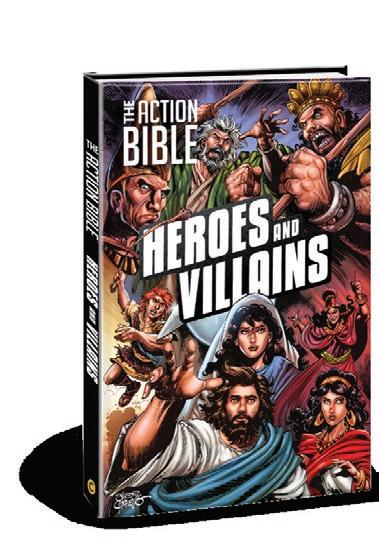

Every page of these bestselling Action Bible products sparks excitement in kids to explore God’s Word and know Him personally. THE ACTION BIBLE EXPANDED EDITION The Bestselling Illustrated Bible for Kids THE ACTION BIBLE FAITH IN ACTION The Bestselling Interactive Bible for Kids THE ACTION BIBLE HEROES AND VILLAINS Illustrated Facts of 75 Bible Characters THE ACTION BIBLE 52-WEEK DEVOTIONAL
A Year’s Worth of Devotionals and Activities for Kids
Purchase your copies at DavidCCook.org or wherever books are sold
escaping egypt I god delivers us I following god with courage


ECHOES MIDDLE SCHOOL CREATIVE TEACHING AIDS is published quarterly by David C Cook, DavidCCook.org. © 2025 by David C Cook, 4050 Lee Vance Drive, Colorado Springs, CO 80918, U.S.A. Bible In Life and David C Cook and its related logos are registered trademarks of David C Cook. All rights reserved. ISBN 978-0-781-44787-4 #1506125. Printed in Gunpo-si, Gyeonggi-do, South Korea, February–April 2025. All Scripture quotations, unless otherwise indicated, are taken from the Holy Bible, New International Version®, NIV® Copyright © 1973, 1978, 1984, 2011 by Biblica, Inc.® Used by permission. All rights reserved worldwide.

a God protects Moses at birth and in his early years so that he can grow up to serve God. (Exod. 2:1-10,15)
b God tells Moses exactly how He wants Moses to serve Him. Sounds like a huge job. (Exod. 3:1-10)
c Pharaoh’s ignoring Moses. Nothing’s happening. He asks, “Now what, Lord?” (Exod. 5:1-2, 22—6:6)
d Hurrah! The waiting is over. God is going into action—with an air raid. (Exod. 12:1-3, 5-7, 12-14)
e What a whiny bunch! The first of many complaints by the Israelites. (Exod. 17:1-6)
f Caleb feels outnumbered. The majority can’t be wrong—can they? (Spy report: Num. 13)
g Gripesville again. Thought God protected His children better than this. Ouch! That bites! (Num. 21:4-9)
h Wanted: Gutsy lady to help good-guy spies. Found: Rahab. (Josh. 2:2-6, 9, 11)
i Cheaters never win; winners never cheat—at Ai. (Josh. 7—8)

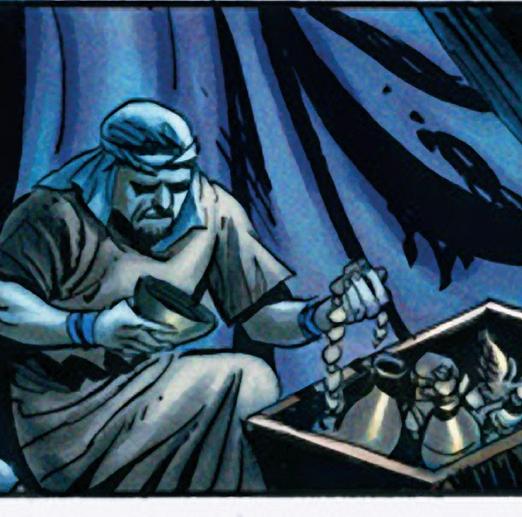
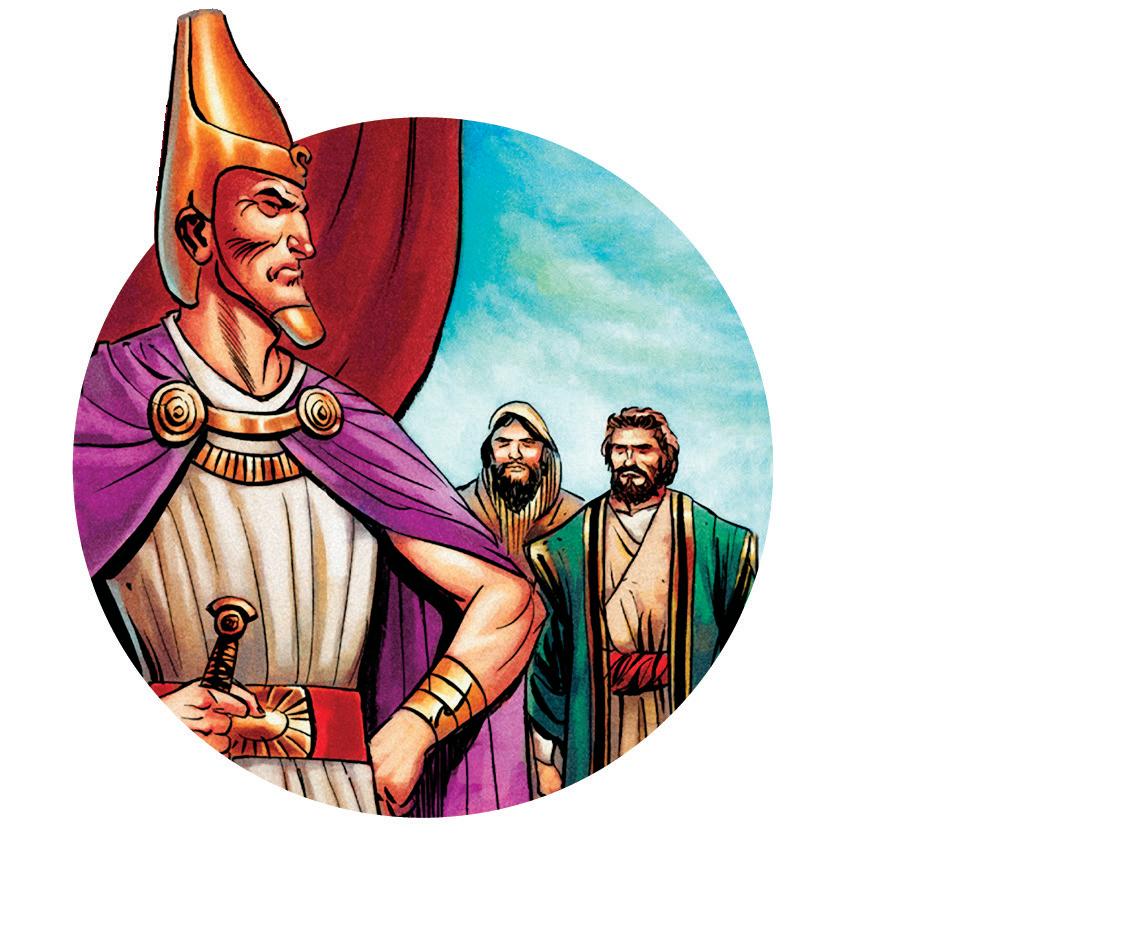
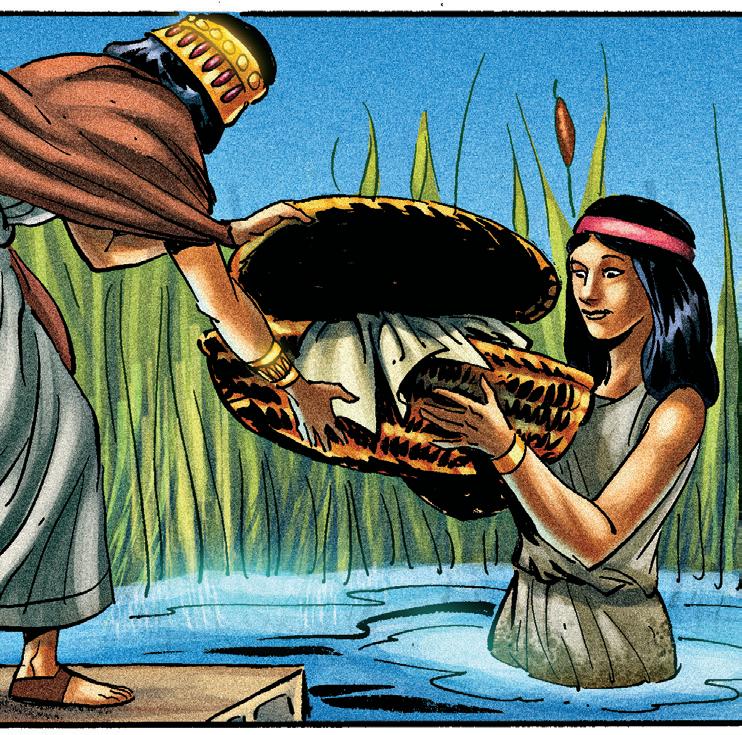
c d
a
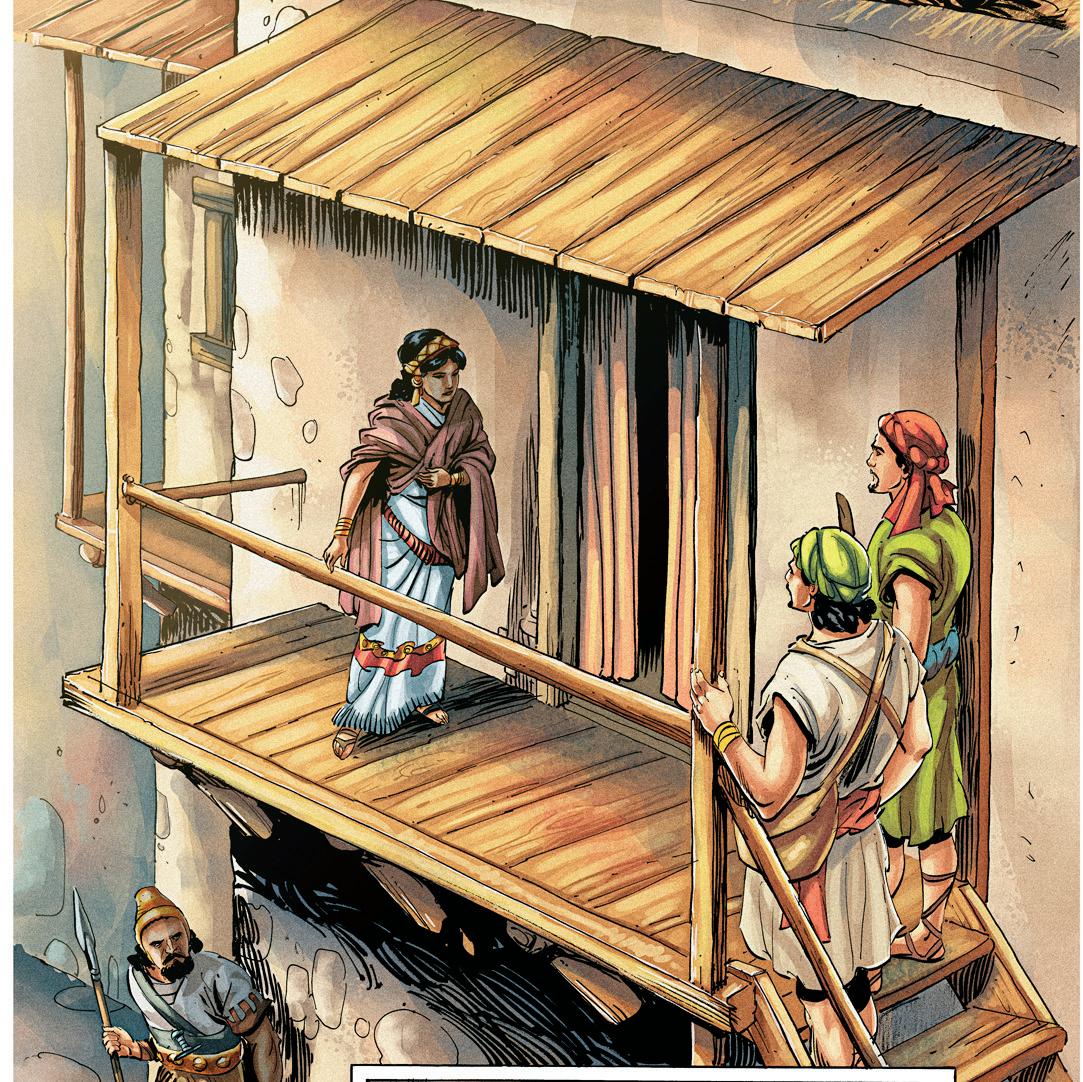


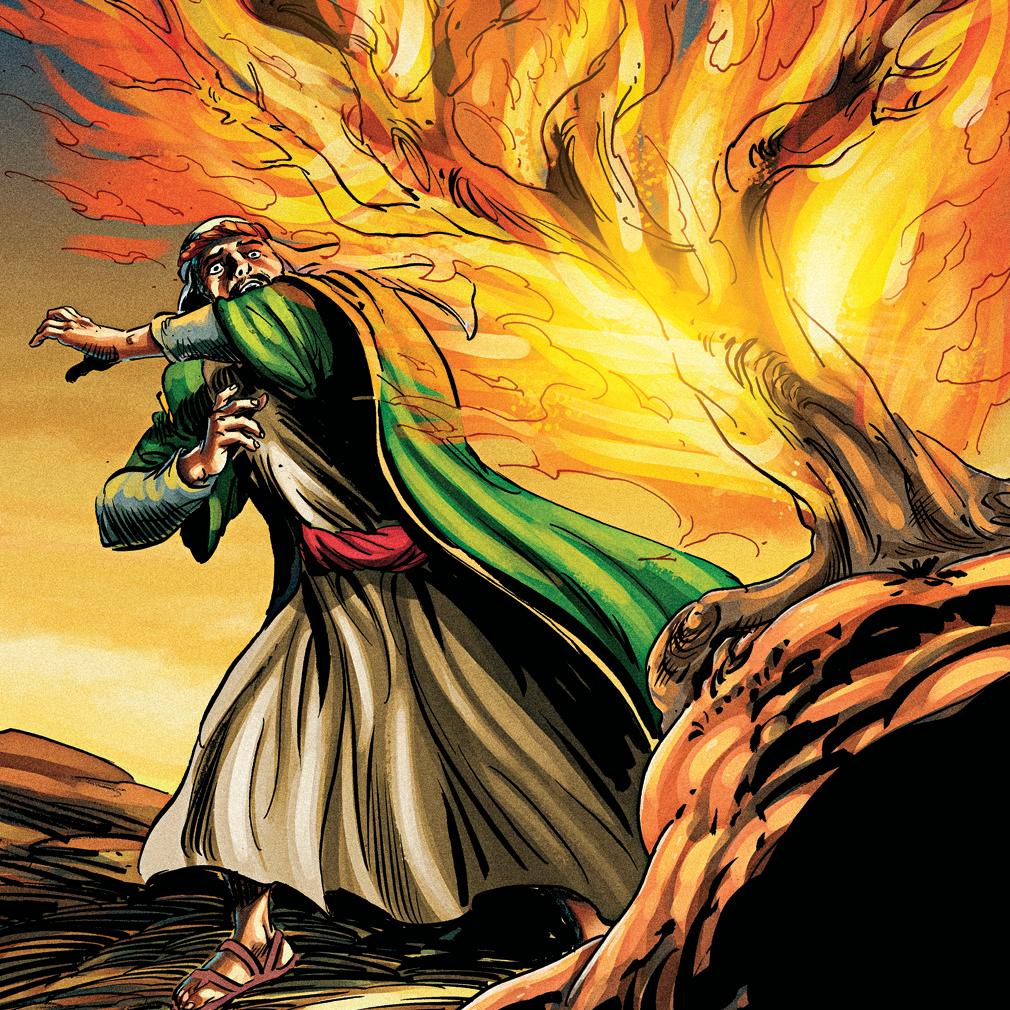
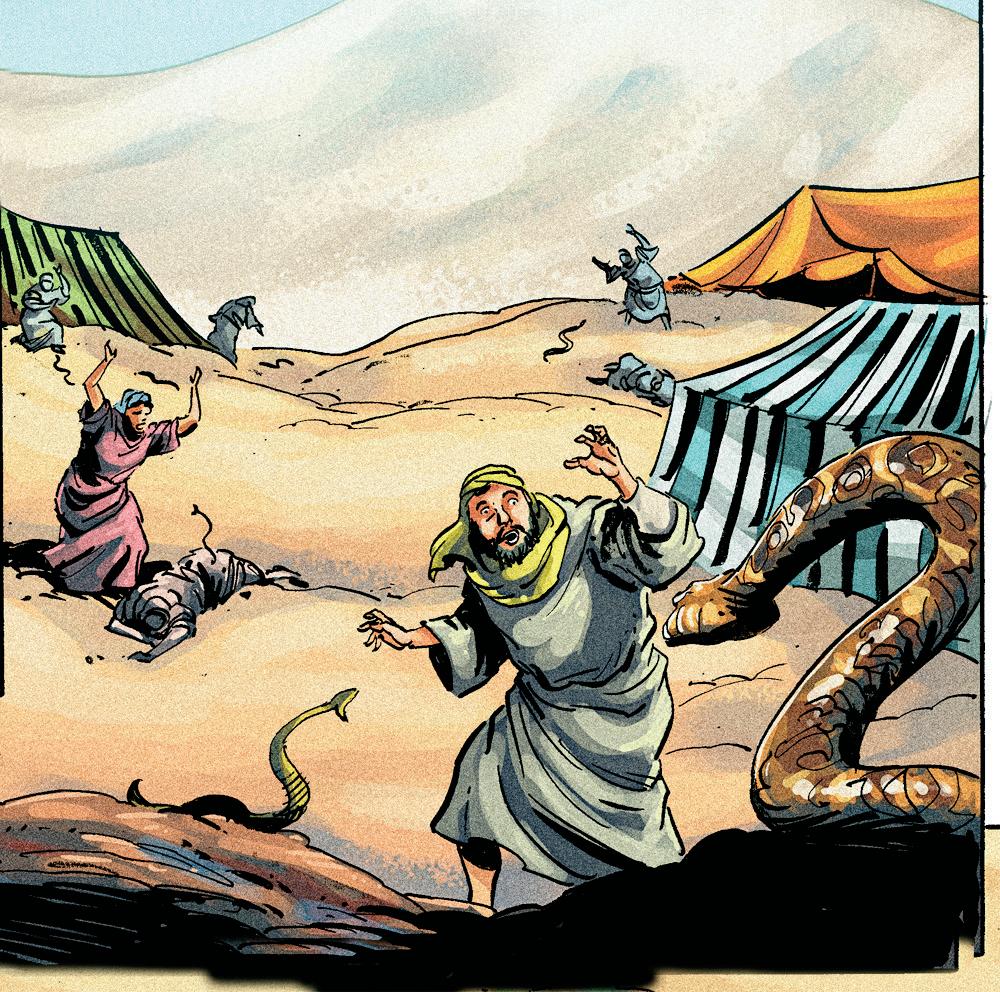
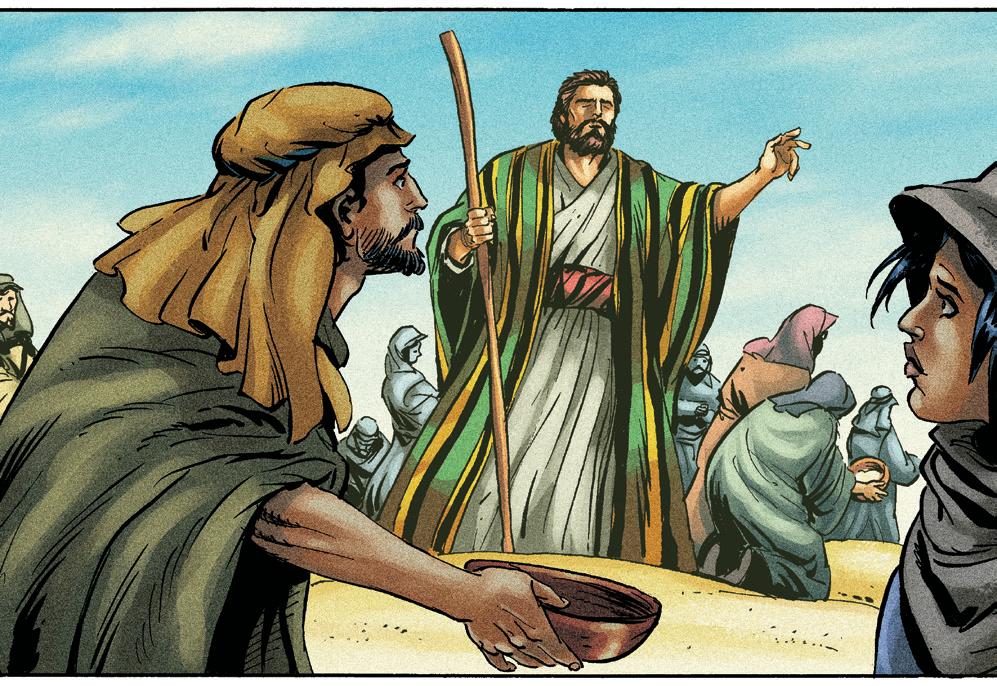
-h-r-i-s! Come here, I need you to go to the store for me.”
Chris’s neighborhood was a war zone, so going to the store wasn’t as simple as taking a stroll down a tree-lined street. A drive-by shooting had already killed the little girl downstairs. Gang members roamed the streets. Drugs were being sold in the
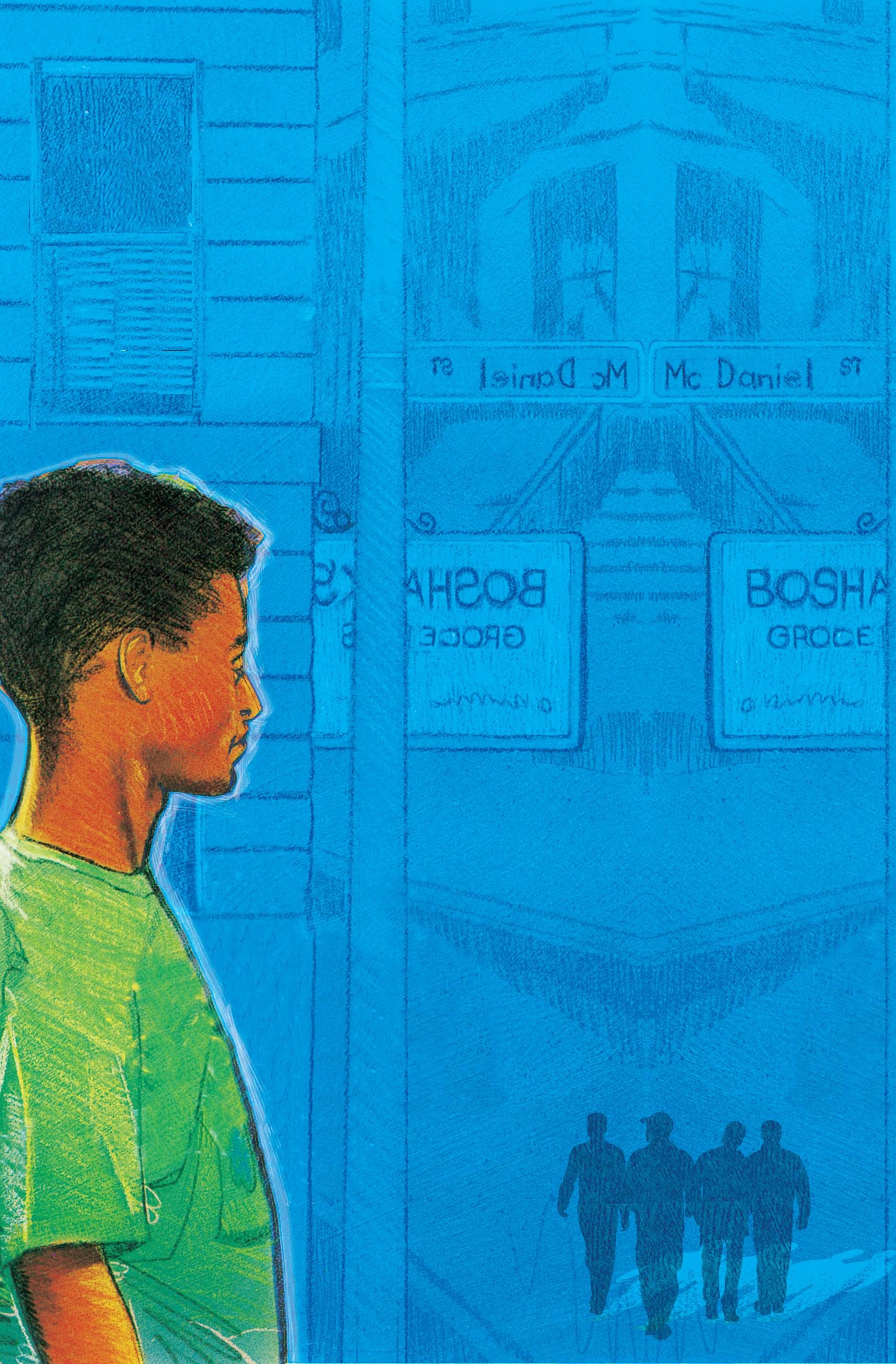
dark recesses of alleys that good people dared not enter. “My goodness!” cried Chris’s mom in disgust, as she stood over the kitchen sink watching the evening news go on about another young black man killed in a gang shooting. “It just sickens me the way they always show us as good-for-nothing poor people livin’ in the ghetto. We are some good people down here; everybody’s not . . .”
“Yeah, Ma, you called me?” Chris answered. “Son, will you please go to the store and get me some corn and hamburger meat so we can eat dinner. Here’s the money—”
“Aww, Momma! It’s past six-thirty,” protested Chris. “All the boys are out there by now, and I gotta go right down McDaniel Street.” He was reluctant to go because some of the boys in his neighborhood were in gangs.
So far, he had eluded their tactics. He attended a school for the gifted during the day, and that took him out of his neighborhood and out of sight most of the time. He spent weekends over at his cousins’ house in the suburbs, and at night he mostly studied or watched television.
“Chris,” his mom responded in a serious tone, “I know it’s dangerous out there, but you’ve gotta rely on the Lord to see you through these gang threats. If God could keep Shadrach, Meshach, and Abednego from the fiery furnace, and give young David victory over Goliath, I know He can keep you safe from those gangs. Don’t ever be afraid of them,” she went on, “but remember to call on the name of God, and you’ll be surprised at what the good Lord will do. You hear me?”
“Yes, Momma!” Chris felt his confidence rise.
He left the apartment and headed down the street. For some strange reason no gang members were out that evening, or if they were, they weren’t on McDaniel Street. Chris smiled as he thought, God, you must be watching over me. But his smile quickly wore off when he saw two gang members turn the corner. He knew one of them. It was Tony, a boy he used to play with as a kid. He hadn’t seen much of him lately though, since he started going to a different school. Just what I need, gangsters comin’ my way. Lord, help me, please. Just then, Chris heard a voice. “Tell them about Me. Tell them I have a future for them and a hope. Tell them I died for their sins and
the sins of the whole world so they could be free. Don’t be afraid, and surely, I am with you always, to the very end of the age.”
Alone and afraid, Chris decided to step out in faith and obey the voice he knew was the Holy Spirit. As soon as he did, his fear went away.
“Hey, Tony, man, long time no see! How’s it been?” he said confidently. Tony and his friend looked like they were trying to get away from someone. They kept looking around. They hardly noticed Chris until he spoke.
“Hey, Chris, what’s up?”
“Y’all lose something?”
“Naw, just trying to stay out of the lane, man. You know, once in, you never get out. ’Cept we ain’t down for no—”
“Yo, man!” Tony’s friend interrupted, “don’t be telling this dude nothing. He can’t help us.”
“You know, you’re right,” Chris responded, “but I know Someone who can. Whatever you’re dealing with, Jesus can help you handle it.” The boys seemed interested so Chris continued.
He talked about Jesus Christ, and the two gang members listened and asked questions.
As Chris walked home he praised God for giving him the courage to share Christ with the two gang members.
When he walked in the door, his mother jumped up and grabbed his neck and hugged him. “Where’ve you been?”
“Ma, you’ll never believe what happened. Let me tell you about it.”
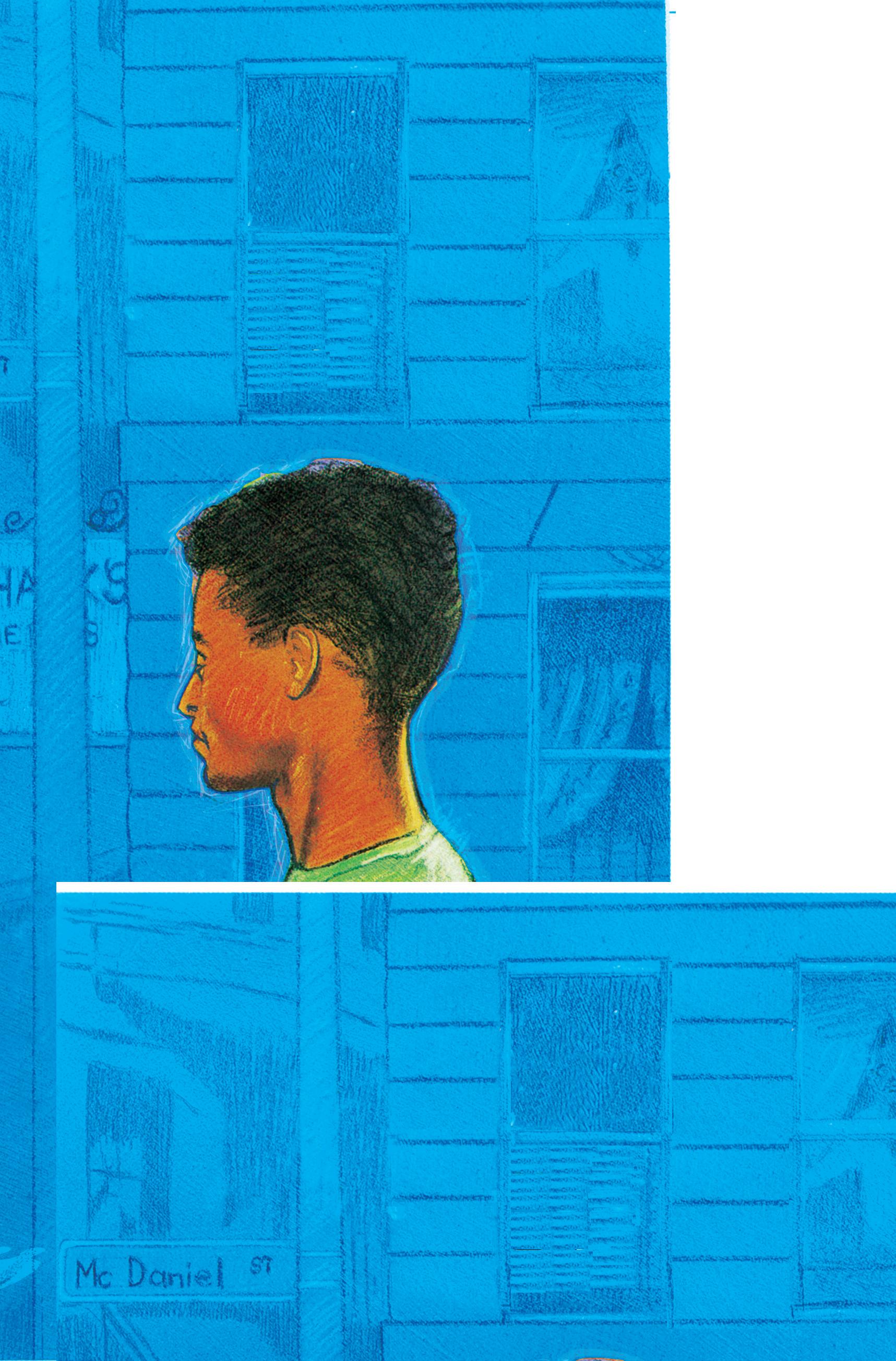


Exodus 2:3-10, 15; 3:1-10; Acts 7:22
God had big plans for Moses. That’s why He had Moses spend his first 40 years in the soft life of a palace getting educated. Then God had Moses spend the next 40 years in the rough life of the desert.
1. Create and fill in a chart about Moses’ background so that you can get to know him better. Read Exodus 2:1-10, 15 and Acts 7:22 to fill in information about these areas of Moses’ life: family background, education, languages, travel, and dangerous experiences.
2. Moses didn’t ask God to make him a leader. How did Moses feel about doing the job God had for him? Did he feel qualified? Read Exodus 3:11 and 4:10, 13.
3. God was preparing Moses all along for leadership. Knowing what you know about Moses as a leader and a prophet, what benefits do you think Moses had in later life from his earlier experiences as a native Hebrew? An adopted Egyptian? In Midian?
4. Draw a picture of Moses’ recruiting scene in Exodus 3:1-10. Show God’s power and what Moses may have felt at that point.
Selected Scripture from Exodus 2:3-10, 15
3But when she could hide him no longer, she got a papyrus basket for him and coated it with tar and pitch. Then she placed the child in it and put it among the reeds along the bank of the Nile. 4His sister stood at a distance to see what would happen to him.
5Then Pharaoh’s daughter went down to the Nile to bathe, and her attendants were walking along the riverbank. She saw the basket among the reeds and sent her female slave to get it. 6She opened it and saw the baby. He was crying, and she felt sorry for him. “This is one of the Hebrew babies,” she said.
7Then his sister asked Pharaoh’s daughter, “Shall I go and get one of the Hebrew women to nurse the baby for you?”
8“Yes, go,” she answered. And the girl went and got the baby’s mother. 9Pharaoh’s daughter said to her, “Take this baby and nurse him for me, and I will pay you.” So the woman took the baby and nursed him. 10When the child grew older, she took him to Pharaoh’s daughter and he became her son. She named him Moses, saying, “I drew him out of the water.”. . .
15When Pharaoh heard of this, he tried to kill Moses, but Moses fled from Pharaoh and went to live in Midian, where he sat down by a well.
1Now Moses was tending the flock of Jethro his father-in-law, the priest of Midian, and he led the flock to the far side of the wilderness and came to Horeb, the mountain of God. 2There the angel of the Lord appeared to him in flames of fire from within a bush. Moses saw that though the bush was on fire it did not burn up.
4When the Lord saw that he had gone over to look, God called to him from within the bush, “Moses! Moses!”
And Moses said, “Here I am.”
5“Do not come any closer,” God said. “Take off your sandals, for the place where you are standing is holy ground.” 6Then he said, “I am the God of your father, the God of Abraham, the God of Isaac and the God of Jacob.” At this, Moses hid his face, because he was afraid to look at God.
7The Lord said, “I have indeed seen the misery of my people in Egypt. I have heard them crying out because of their slave drivers, and I am concerned about their suffering. 8So I have come down to rescue them from the hand of the Egyptians and to bring them up out of that land into a good and spacious land, a land flowing with milk and honey—the home of the Canaanites, Hittites, Amorites, Perizzites, Hivites and Jebusites. . . . 10So now, go. I am sending you to Pharaoh to bring my people the Israelites out of Egypt.”
Yes, you are old enough now to go find a job. Whether you’re doing chores around the house, mowing lawns, walking dogs, or franchising your babysitting skills, it’s time to learn the basics to building a good, solid work ethic.
1. Find something you like to do, and do it. When you are doing something you enjoy, it doesn’t feel like work. Think about things you are good at and try to find a way to turn those things into a job. Do you like dogs? Start a dog walking service. Do you like to organize? Ask your parents if you can organize the garage or all the closets.
2. Always show up on time and be ready to work. When you tell someone you will babysit at 8:00, be there by 7:55 so you can be ready to watch the kids by 8:00. If you agreed to mow a lawn on Saturday morning, then show up early and work efficiently so your work is completed in the morning, just as you promised.
3. Work while you are on the clock…no cell phones, inviting friends over or taking long breaks. Someone is paying you to work a certain amount of time, and you need to work those specified hours. When employers see how well you work, they will be happy to give you breaks.
4. Learn as much as you can while doing your job. Ask your employer questions about how you can do your job better. If you are going to walk dogs, find out about the dogs. Ask the owners if the dogs have special needs or if they act a certain way when, for example, they see a cat. Also do research on your own. The owners will be impressed that you know so much about their pets.
5. It’s ok to start at the bottom. You learn more with each step up the ladder. You will gather knowledge each level and when you are at the top you will be able to help out in any job at any time…and you’ll also remember how the people just starting out feel. Start with mowing your parent’s lawn and maybe a neighbor’s lawn or two. Then once you perfect the art of mowing, you can move on to making fliers to hand out in the rest of the neighborhood and surrounding areas.
“For it is God who works in you to will and to act in order to fulfill his good purpose.” Philippians 2:13

When we let God act through us, we are simply doing His will.
MONDAY Read Philippians 2:13. Make a list of ways you can be of service to God this week. Pray about the list, then make plans to act. Remember, you and God are a team.
TUESDAY Think about times you are tempted to react to problems rather than act “according to his good purpose.” How can God help you during these times?
WEDNESDAY Been working on the list you made on Monday? If you’ve completed everything on your list, good for you! Thank God for His help. If you haven’t started, you can start today.
THURSDAY Think about some of the ways God could be preparing you to serve Him in the future. What are some things you like to do now? What talents do you have? How do you think they could be used for God’s glory?
FRIDAY Read Romans 8:28 and Micah 6:8. What do you think God’s purpose is for your life? How can the Holy Spirit help you to act in order to fulfill this good purpose?
SATURDAY End the week thanking God for His actions on your behalf.
Middle School The Rock No. 5062